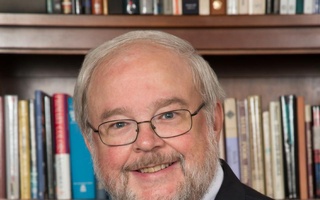The Carr Center for Human Rights Policy commemorated its 10th anniversary last night at the IOP in a forum highlighting the progress the institution has made over the past decade.
The event, entitled ‘Why Human Rights Matter,’ showcased a speech by the Center’s founder, Gregory C. Carr, in addition to a discussion between Kennedy School Professor Samantha Power and Kennedy School Lecturer Sarah Sewall, two prominent leaders in the human rights movement.
The discussion was moderated by Kennedy School Professor Rory Stewart and centered around the Carr Center’s role in shaping human rights policy and the minds of students.
Carr opened the forum with an explanation of his motives in founding the Center, saying that Gandhi’s belief that humans should give back to their communities inspired him to establish the Center.
The discussion shifted to Power, who described the common thread that unites those working and studying at the Carr Center.
“Impatience,” said Power, “is what drives the people here to get things done. In human rights, there is an evidence-based result.”
Sewall agreed, adding that the focus of human rights work should be on impact.
She also said that because human rights was “set back” by the U.S. invasion of Iraq, the definition and rhetoric of human rights should be approached with greater nuance.
Sewall also discussed the appropriate use of power in the implementation of human rights.
“Sometimes, a forceful approach will be justified, as in the case of the Bosnia human rights interventions. However, it is a complicated formula to think about what human rights are and how the rhetoric of human rights is used.”
In a question and answer session, Jake Sloane ’12 asked the speakers to highlight the most notable achievement of the Carr Center since its creation.
Stewart referenced the important role the Carr Center played in addressing the human rights violations in Bosnia.
“The center should be very proud of its impatience for action,” he said. “Crime rates in Bosnia are now lower than they are in Sweden. 230,000 Bosnian refugees returned to their homes in a year.”
Read more in News
Report Questions Red Line SafetyRecommended Articles
-
Harvard to Face Terriers Tonight at Garden InRound One of Annual Beanpot TournamentExam period can mean joy or disappointment for any student--especially Harvard hockey players. Tonight Harvard will face off against Boston
-
Pucksters Are Confident Despite Defeat by B.U.Ten straight games? "I think we can do it," Harvard hockey captain Kevin Carr said yesterday. "You've got to take
-
'Igniting Innovation' Promotes Student EntrepreneurshipStudents, scientists, and businessmen gathered in Boylston Hall on Saturday for an inspiring display of social enterprise.
-
IOP Focuses on the Presidency in 2012 Fall Fellows LineupA former presidential campaign strategist and two former presidential administration staffers headline the slate of Institute Of Politics fellows for the semester leading up to the 2012 presidential election.
-
 John Carr
John Carr -
 New Exhibit Explores History and Science of Human Dissection
New Exhibit Explores History and Science of Human Dissection













